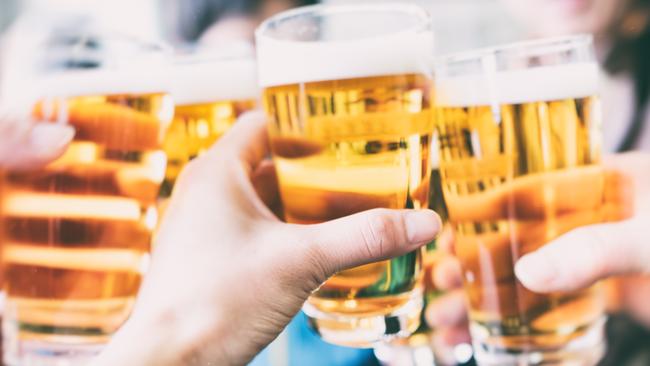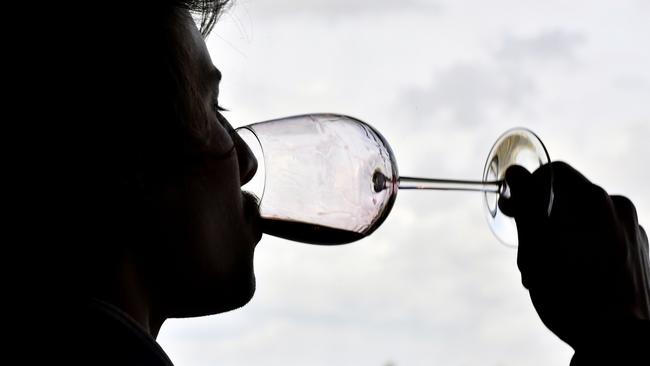The ‘alcohol is bad’ narrative is a best-selling lie
DEMONISERS of alcohol are motivated not by wishing to improve people’s health, but by annoyance that some can enjoy it without endangering themselves or others, writes Fred Pawle.
Rendezview
Don't miss out on the headlines from Rendezview. Followed categories will be added to My News.
THE champions of temperance and prohibition were clinking celebratory glasses of sparkling water this month when the world’s media repeated startling research, originally published in The Lancet, that found the minimum guidelines for safe drinking in most countries were — you guessed it — too high.
“Many Australians are unaware or underestimate the health impact of long-term alcohol consumption,” the ABClectured.
Men’s Health magazine departed from its usual muscular preening to quiveringly warn about “premature death”.
And The Sydney Morning Herald maintained its customary sanctimonious paranoia by reporting that “the more you drink, the higher your risk.”
There was only one problem. It wasn’t true.
The claims were bubblier than the head of a freshly poured schooner.
Buried in the original report was the revelation that the researchers excluded non-drinkers, and therefore overlooked the widely accepted higher mortality of teetotallers.
It has been known for decades that the effect of drinking on mortality is “J-shaped” — a curved decline up to about 10 glasses of wine or equivalent per week, then a curved incline as consumption increases towards levels colloquially known as “anti-social”, “alcoholic” and “unsafe around naked flames”.
So why did the researchers not include teetotallers in this latest study?
“Ex-drinkers include people who might have abstained from alcohol owing to poor health itself, as well as those who have changed their habits to achieve a healthier lifestyle,” the report said.
In other words, their poor health would skew the results of a health survey.

As The Spectator in Britain pointed out, if the researchers were serious about recommending an optimum level of consumption, they would tell non-drinkers to start drinking and tell light drinkers to drink more.
“Needless to say, the ‘public health’ lobby has no intention of doing this,” it said.
And therein lies the real issue.
The buzzkillers and other demonisers of alcohol are motivated not by altruistically wishing to improve other people’s health, but — forgive me if this sounds like a wild guess — by the annoying realisation that some people can enjoy drinking without endangering themselves or others.
This is why the anti-alcohol lobby makes fewer and fewer concessions towards non-problem drinkers — who are the overwhelming majority — and tries to broaden the definition of “dangerous” drinking and impose population-wide sanctions to control a minority.
It is also why Health Minister Greg Hunt needs to exercise caution as he considers the National Alcohol Strategy, the draft report of which was published late last year.
The draft declares that you are at “risk of injury” after only five standard drinks, and that a quarter of all Australians drink this much at least once a month. How do our A & E departments cope?
The draft’s main objective is to reduce the harm caused by drinking — such as disease, domestic violence, policing, injuries, birth defects and lower productivity — by 10 per cent within 10 years.
A noble intention in theory but impractical when you realise that alcohol is often the last link in a chain of factors leading to such undesirable outcomes.

The proposed solution, to impose a minimum price on alcohol, is like trying to prevent crashes involving black cars by allowing only coloured cars on the road.
In its report on this area of public policy last year, the Menzies Research Centre said the modern temperance movement consistently fails to define the benefits of its restrictions and explain its ability to fix the problem.
“The test of good public policy should not be whether a proposed course of action feels right, but its ability to achieve a desired outcome without undesirable consequences,” the report said.
Instead, the temperance movement relies heavily on hyperbole to make its case.
The report investigated the claim, first made by Alcohol Education and Rehabilitation Foundation director Tim Costello in 2010 and uncritically repeated ever since, that alcohol costs the Australian community $36 billion a year.
“It is an extraordinarily large figure, amounting to more than half the Commonwealth’s annual health budget,” the report said, adding that it was based on rubbery and ambiguous research.
It also overlooks the benefits of moderate consumption of alcohol.
For example, Deloitte Access Economics estimated that in 2012-13 the alcohol industry turned over $26.2 billion, contributed $6.5 billion in taxes and generated $2.2 billion in exports. It provided jobs for the equivalent of 27,000 full time employees.
When tourism expenditure and an estimate for the health benefits of moderate consumption are included, DAE calculated the benefits of alcohol to be worth $30.7 billion.
Yet the enthusiasm for The Lancet’s recent report shows that moralising is alive and well among busybodies. These scolds need to pour themselves a long drink and stop worrying about other people’s mostly harmless behaviour.
Fred Pawle is Communications Director at the Menzies Research Centre.
